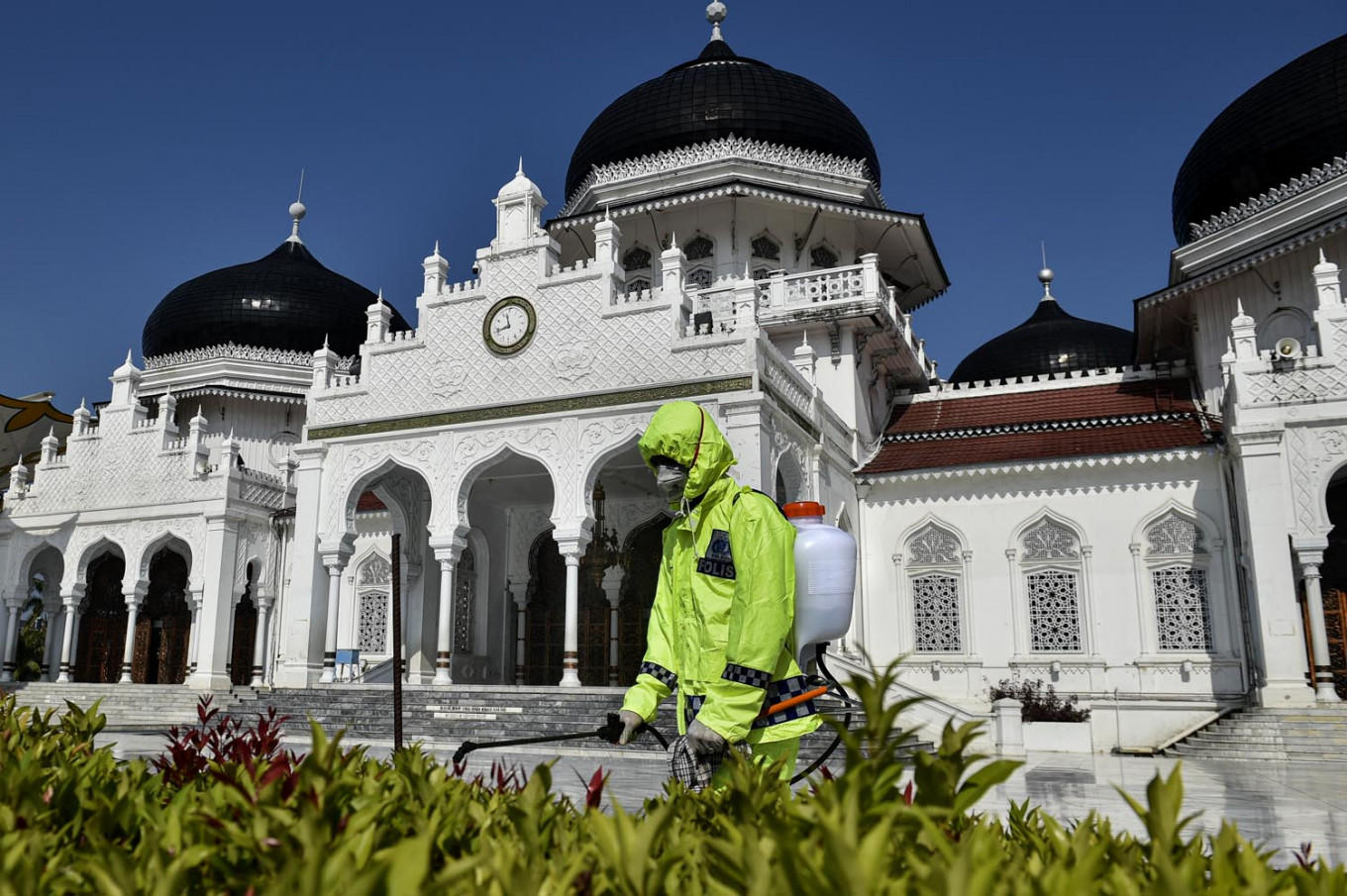Popular Reads
Top Results
Can't find what you're looking for?
View all search resultsPopular Reads
Top Results
Can't find what you're looking for?
View all search resultsSMRC survey finds local govts rated higher for COVID-19 response than central govt
A recent survey has found that most Indonesians felt that their own provincial administrations had responded more quickly to the COVID-19 outbreak than the central government.
Change text size
Gift Premium Articles
to Anyone
T
he results of a recent survey suggests that the public believes that the central government has been slower at responding to the outbreak of COVID-19 in the country than regional administrations.
The telephone survey on COVID-19 pandemic, which Saiful Mujani Research & Consulting (SMRC) conducted between April 9 and 12, involved 2,230 respondents aged 17 and above across Indonesia.
The majority of respondents (59 percent), felt that provincial administrations had responded quickly in implementing COVID-19 prevention and control measures. In a separate section regarding the central government’s response, only 52 percent of respondents felt that it had responded quickly.
The survey also revealed that 61 percent of all respondents were satisfied with the performance of municipal and regency administrations in managing the outbreak. In the section on COVID-19 response at the district and village levels, 65 percent of respondents felt that lower-level administrations had responded quickly.
The majority of respondents in the X provinces surveyed across the nation, excepting those in South Sulawesi and Banten, felt that the central government had responded more slowly than their provincial administrations. However, respondents in South Sulawesi and Banten generally felt that the central government had responded to the outbreak more quickly or just as fast as their provincial governments.
Respondents in Bali and East Nusa Tenggara topped the survey at 82 percent each in terms of crediting their provincial administrations with responding more quickly than the government. They were followed by respondents in Central Java (73 percent), Maluku and Papua (69 percent each), East Java (68 percent) and Jakarta (62 percent).
Read also: 'Puskesmas' move up to COVID-19 front lines amid overburdened health system
The survey also showed that respondents across all age groups, education levels and incomes felt that provincial administrations had generally responded more quickly to the COVID-19 outbreak than the central government.
In terms of the central government’s overall performance by occupation, 65 percent of ride-hailing ojek (motorcycle taxi) drivers felt that it had not responded quickly, followed by the very poor (65 percent) and wage workers (45 percent).
The survey also found that 67 percent of all respondents had experienced worsening personal finances following the outbreak’s emergence – slightly more than double the 38 percent that was reported in a similar survey two weeks ago.
Around 70 percent of respondents across all provinces reported a slump in income after the outbreak emerged in the country. Of this figure, 33 percent – or 25 percent of all respondents –said they could no longer meet their basic needs without taking out a loan.
Meanwhile, 15 percent of all respondents said that their savings had declined to levels that could sustain them for a week at most, while another 15 percent said that they had only enough savings to sustain them for a month at most.
Read also: Jakarta’s poor at risk as city drags feet on COVID-19 social assistance
The SMRC survey found that low-income workers, especially those on daily wages, were the group most affected financially during the large-scale social restrictions (PSBB). It also said that this group had the greatest potential of violating the PSBB policy in order to make a living and survive financially during the outbreak.
The pollster also found that 34 to 37 percent of respondents objected to banning ojek from transporting passengers. Applying this percentage to the population would indicate that around 60 million Indonesians might violate the PSBB.
The report suggested that the government immediately offer financial assistance for these vulnerable groups through subsidies and other forms of aid to ensure the enforcement of the PSBB to “flatten the curve” of COVID-19 transmission.










